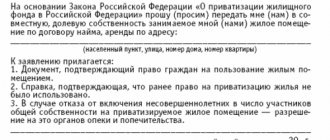G. Alekseev Author of the article
Current legislation provides for such a basis for legal transfer as exchange. The right of use can be transferred in a similar manner. Thus, when living in an apartment on the basis of a social tenancy agreement, ownership rights do not arise before privatization, however, it is possible to exchange for premises with the same form of ownership (that is, municipal).
Legislative grounds for the exchange of municipal housing
The Housing Code (LC) regulates the possibility of exchanging non-privatized living space. So, it has a separate article devoted to this issue. According to Art. 72 of the Housing Code of the Russian Federation, the rules for the exchange of municipal housing are as follows:
- an exchange can be made in the case of using housing under a social tenancy agreement only after receiving written consent from the owner, as well as from all residents of the premises;
- The tenant can exchange the living space only for the same - municipal;
- when choosing an alternative premises, all residents have the right to vote: they can demand to change to a certain living space or even premises in different houses or rooms in different apartments;
- on the issue of choosing housing, consensus may not be reached, then each of them has the right to demand forced exchange through the court;
- in a special order, the exchange of living space is carried out where children or citizens with limited legal capacity and those who are completely incapacitated live: the guardianship and trusteeship authorities are involved here, and written consent to the exchange is required from them;
There is no legal limit on the number of participants, so any number of citizens can participate in the exchange procedure.
Municipal apartment
Despite the fact that the privatization procedure has been going on for more than 20 years, today there is a lot of municipal housing.
Many people living under a social tenancy agreement want to leave. The procedure itself is free, except when you have to go to court. There you will definitely need to pay a state fee. In addition, if the administration is looking for exchange options, then you will have to pay for such a service.
The exchange of a non-privatized apartment, which is the property of municipal authorities, occurs in several stages:
- Search for optimal options. Finding a suitable apartment is difficult, since there are few non-privatized housing left. In some cities, the administration offers a paid service for selecting housing options, which can significantly speed up the process.
- Preparation of documentation. If there is no social rent agreement, then be sure to conclude one. There should also be no utility debt.
- Obtaining consent to exchange. Permission is given by the property owner. In this case it is the municipality. The consent of all legally capable persons registered in the living space is also required. If there are small children (under 18 years of age), permission will be required from the guardianship council.
- Drawing up an exchange agreement. The conclusion of the transaction takes place not in Rosreestr, but in special institutions. They are authorized to register exchange transactions. The previously drawn up agreement is terminated on the basis of the exchange agreement and the consent of all residents.
- Drawing up a social tenancy agreement for a new apartment.
The scheme is quite complex and lengthy. Requires the collection of many documents. In addition, it is very difficult to exchange for a similar living space. Therefore, sacrifices have to be made on both sides. Neither party to the transaction should charge extra for a less profitable option.
Social housing tenants are not entitled to receive personal benefits from an apartment with this legal status. After submitting all documents, the registration procedure should not be delayed for more than 10 days. If the issue is resolved through court, the proceedings may last for several months.
ATTENTION! Non-privatized housing can only be exchanged for an apartment with a similar legal status. Exchange for privatized real estate is not allowed.
When is it not possible to exchange living space?
The law establishes some restrictions on transactions involving the exchange of non-privatized premises. According to the rules of Article 73 of the RF Housing Code, these are the following circumstances:
- a claim has been filed against one of the citizens exchanging living space for termination or modification of the terms of the social tenancy agreement;
- the right to use one of the apartments by the tenant is currently being challenged in court;
- the dwelling for which citizens were going to exchange their apartment was declared unfit for living in the manner prescribed by law;
- the house in which one of the living spaces is located is prepared for demolition;
- Residential premises located in a building in which major renovations are planned, the implementation of which will also affect apartments, cannot participate in the transaction;
- if, as a result of the exchange, a person is accommodated in a communal apartment with a disease, the presence of which, by law, requires special living conditions (clause 4, part 1, article 51 of the Housing Code);
- if a citizen and his household members, as a result of a housing exchange, become in need of expanded living space.
If none of the above points suit your case, then you can exchange housing.
Documentation
To change a municipal apartment, you need to provide the following documents:
- Application for exchange by all registered residents. If there are minors, the consent of the guardianship and trusteeship authority.
- Unified housing document (for the capital).
- Help from the house register. They may be required to provide documentary evidence from the housing department about the absence of utility debts.
- Social rent agreement.
- Identity documents.
- A set of documents used during design.
- Documents or statement about the presence or absence of other real estate.
The list is approximate and may be supplemented by other documents. Their list and quantity depends on the rules established in a particular city. The other party to the transaction must also collect the same list of securities. After collecting all documents and obtaining permission, residents of the exchanged housing must appear for warrants for a new apartment.
It is worth noting that not all real estate offices prefer to deal with the exchange of such apartments. Government organizations are also not obliged to provide assistance in finding housing. In most cases, it is easier to first privatize an apartment and then deal with its exchange.
The only option remains to search independently. Moreover, you can exchange an apartment for another city, which is not contrary to the law.
Algorithm for exchanging non-privatized living space
The specifics of registering the exchange of housing used by tenants under social tenancy agreements are described in Article 74 of the Housing Code. In general terms, the order of exchange is as follows:
- obtaining consent from all residents and the property owner;
- selection of an alternative option;
- the exchange itself and the corresponding procedure for completing the transaction;
- if for some reason no agreement is reached on key points, then the exchange can be carried out in court.
If the parties come to an agreement, then previously concluded social employment contracts are subject to termination, and new ones are concluded in their place within ten days.
Realtor tips
Hello, please tell me. Here we have a three-room apartment, it is not privatized. There are 6 people registered in the apartment. Me, my daughter, son and they are both minors, brother, mother, and grandmother. I insist on exchanging the apartment, but they do not give consent. I need to live somewhere with my two children. Tell me what to do. And how can you quickly divide an apartment.
Hello. The situation is this: In a four-room, non-privatized apartment, 7 people are registered, 1 of whom is a minor child. We live like 2 different families. According to the court, our bills were divided and now we receive different receipts for payment. Relatives are problematic, clashes occur periodically, everything ends with a call to the police, etc. They refuse to privatize us, but we have nowhere to move, we have to endure it. How to get out of this situation? if there are any options for exchange or partial privatization (but it seems like there is no such thing as partial privatization?)
We recommend reading: At the request of the farmer Gordeev to the administration of the Azov region to allocate a plot of land for haymaking
Exchange in court
It should be mentioned that only a non-privatized apartment can be subject to forced division - the property of citizens cannot be forcibly exchanged. To carry out this procedure, the citizen who filed the claim should find alternative housing options.
By the way, forced exchange is quite rare, since it is usually disadvantageous to any of the participants in the process. Citizens who interfere with the exchange are not allowed to select housing options. Consequently, they can only move to where the court decides. This is also disadvantageous for the plaintiff himself - the trial may drag on, so it is difficult to find an employer willing to wait until the trial is over.
Through the court
If all residents agree to exchange, this is the most convenient and simplest option. But this doesn't always happen. In practice, there are often cases when not all registered persons agree to such a procedure.
How to carry out a transaction with a non-privatized apartment if one of the residents is against it? And is it possible to exchange without obtaining consent? In this situation, the issue can only be resolved through court. In this case, the interests of all parties to the dispute will be considered.
Before the new Housing Code of the Russian Federation came into force, if a controversial situation arose, it was possible to exchange housing forcibly. Theoretically, the law considers such a situation. But in judicial practice, in most cases, a negative decision is made on the issue of forced exchange.
For the trial, it is necessary to provide a specific housing option. Otherwise, the application may be rejected. You need to be prepared for the fact that the trial may drag on for a long time.
ATTENTION! If one of the residents does not agree with the decision of the rest of the family, you can try to exchange only part of the housing. However, this is problematic, since the other party to the process may not agree to this option.
FAQ
Is it possible to exchange a non-privatized apartment if there are debts on utility bills?
There is no legal prohibition on exchanging a home with a debt. Circumstances preventing the exchange are specified in Article 73 of the Housing Code (LC), and among them there are no debts on housing and utility payments. The only thing that can interfere with the exchange is litigation over debt, since this is a condition for prohibiting such a transaction (Article 73 of the RF Housing Code).
An important condition for the legality of a transaction in accordance with Art. 72 of the Housing Code is considered to be the consent of both the landlord and all residents of the exchanged living spaces. So, if all named persons agree to an exchange if there is debt, then the transaction is possible.
Does a tenant have the right under a social tenancy agreement to sell the housing they are using?
According to the rules of the current legislation, issues of handling non-privatized housing are regulated by the Housing Code, which does not provide for sales. And issues of purchase and sale are considered by the Civil Code (Article 549), but only after privatization has been carried out.
Therefore, you can sell municipal housing either after transferring it to private ownership, or in an “unofficial” way. To carry out the latter, the tenant registers the buyer in the rented living space. As a result, the buyer has the right to live in the apartment, and in the future can privatize the apartment. The seller checks out of the property. And the transfer of funds occurs by issuing a receipt. A purchase and sale agreement is not drawn up, so this path is fraught with great risks.
How to exchange a non-privatized apartment if one is against it
And the second question: if the mother is currently a resident of Spain and agrees to the exchange, can she participate in this somehow remotely or must she be present in person at the trial, for example, to carry out a forced exchange of a non-privatized apartment because of her father? How to exchange a non-privatized apartment? If necessary, then every time (in case of refusal or repeated application) or is it enough just the first time + writing some paper that I will “represent her interests”? Thank you.
We recommend reading: Procedure for registering a deed of gift for a house and land
Good evening! Please tell me, is it possible and how to exchange a non-privatized apartment? The problem is this: there is a two-room non-privatized apartment in which 3 people are registered (mother, alcoholic father and daughter, that is, me). Question: how to carry out a forced exchange of a non-privatized apartment if the father is against privatization and exchange? I understand that it is almost impossible to exchange a non-privatized apartment, and it is impossible to force a person to privatize against his will. So what can be done in such a situation?
Apartment exchange agreement
An agreement on the exchange of residential premises is concluded in writing directly between tenants, but its preparation is impossible without the participation of apartment owners. The agreement form must contain the following points:
- Name of the form.
- Date and place of compilation.
- Information about employers who are parties to participation - full name, date of birth, registration address, passport details.
- Data on the living space occupied by Party 1 and Party 2 at the time of conclusion of the agreement. Here is an indication of when, by whom and where the decision was made to move citizens into municipal housing, as well as the number and date of the conclusion of the social tenancy agreement.
- Addresses of apartments, indicating their number of floors, square footage, number of rooms and other nuances.
After describing the real estate exchanged, it is necessary to indicate in the contract that:
- Residents in one and the other premises are registered by name.
- The parties are satisfied with the condition of the apartments and have no complaints.
- The capacity of the parties to the transaction is beyond doubt.
- The handover of keys and documentation took place.
The document is drawn up in triplicate - one form for each party. It is signed by all participants and certified by the owner. After concluding an exchange agreement, within ten days the parties must terminate the old social rental agreements and enter into new ones.







